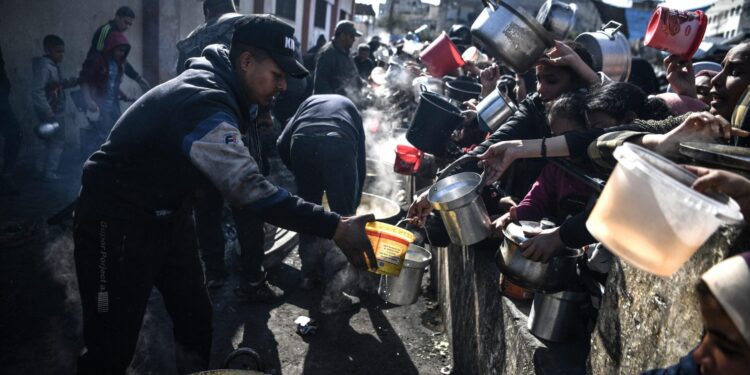Spain has announced a significant escalation in its humanitarian support for Gaza while simultaneously imposing an arms embargo on Israel, marking a notable shift in its foreign policy amid ongoing conflict in the region. The Spanish government’s dual move aims to address the escalating humanitarian crisis in Gaza and signal its stance on military engagement, as tensions continue to mount. This development comes as international pressure grows for renewed efforts toward peace and protection of civilians in the volatile Middle East territory.
Spain Boosts Humanitarian Support for Gaza Amid Rising Conflict
In response to the escalating violence in Gaza, the Spanish government has significantly stepped up its humanitarian efforts, channeling more resources to alleviate the growing crisis faced by civilians. This increase in aid includes urgent medical supplies, food provisions, and shelter assistance, aimed at supporting thousands affected by ongoing hostilities. Spain’s move reflects a broader European concern and commitment to addressing the urgent needs of displaced populations amid the conflict’s intensification.
Alongside humanitarian support, Spain has also taken a firm political stance by imposing an arms embargo on Israel, signaling its disapproval of the military escalation. This decisive action includes:
- Suspension of all arms exports and transit related to Israel
- Reassessment of existing military contracts
- Calls for diplomatic negotiations to resume
Below is a brief overview of Spain’s key actions related to the crisis:
| Action | Description |
|---|---|
| Humanitarian Aid | Increased funding for medical and food relief in Gaza |
| Arms Embargo | Ceasing arms exports and military cooperation with Israel |
| Diplomatic Efforts | Encouragement of international peace talks and ceasefire |
Madrid Implements Arms Embargo on Israel to Pressure Ceasefire
In a decisive move reflecting growing international concern, Spain has announced a comprehensive arms embargo targeting Israel. This measure aims to exert diplomatic pressure in favor of an immediate ceasefire amid escalating violence in the Gaza Strip. By halting arms exports, Madrid joins a chorus of European nations seeking to curb the conflict’s humanitarian toll, signaling a shift toward more assertive foreign policy mechanisms focused on conflict de-escalation.
Simultaneously, Spain is markedly increasing its humanitarian aid budget dedicated to Gaza, funneling resources to critical medical supplies, food, and shelter. The government’s commitment underscores a dual strategy of applying political pressure while addressing urgent civilian needs. Key highlights of Spain’s enhanced aid initiative include:
- Allocation of ‚ā¨15 million for emergency health services
- Deployment of humanitarian relief teams in coordination with international agencies
- Provision of clean water and sanitation facilities to refugee centers
- Support for child protection and education programs amid the crisis
| Action | Status | Projected Impact |
|---|---|---|
| Arms Embargo Enforcement | Active | Reduction in military supplies |
| Humanitarian Aid Expansion | Ongoing | Improved civilian welfare |
| International Coordination | In Progress | Enhanced relief logistics |
Experts Call for Enhanced Diplomatic Efforts to Protect Civilians
International experts emphasize the urgent need for a comprehensive diplomatic approach to safeguard civilians caught in conflict zones. They highlight the importance of dialogue between all parties involved to prevent further escalation and mitigate the humanitarian toll. According to analysts, proactive diplomacy coupled with strict adherence to international humanitarian laws can help in creating a safer environment for vulnerable populations. The call to action includes:
- Strengthening ceasefire agreements through multilateral negotiations
- Enhancing cross-border humanitarian aid accessibility without restrictions
- Implementing rigorous monitoring mechanisms to ensure protection of non-combatants
Furthermore, policy advisors warn that without increased diplomatic pressure and sustained international cooperation, civilian casualties are likely to rise. They urge governments and international organizations to prioritize conflict resolution and impose measures that curb the influx of arms into volatile regions. A recent comparative analysis demonstrates how diplomatic initiatives have historically reduced civilian suffering in similar crises:
| Conflict Zone | Year | Diplomatic Initiative | Result on Civilians |
|---|---|---|---|
| West Africa | 2014 | Regional Peace Talks | Reduced casualties by 40% |
| Middle East | 2011 | UN Mediation Efforts | Increased humanitarian access |
| South Asia | 2009 | Ceasefire Agreements | Significant drop in displacement |
Key Takeaways
As tensions in the Gaza Strip continue to escalate, Spain’s decision to ramp up humanitarian aid while imposing an arms embargo on Israel marks a significant development in the European response to the conflict. This move underscores growing concerns over civilian casualties and the urgent need for relief in the region. As the situation evolves, international attention remains focused on efforts to alleviate suffering and promote a peaceful resolution. Euronews will continue to monitor the impact of Spain’s actions and the wider geopolitical repercussions in the coming days.
















